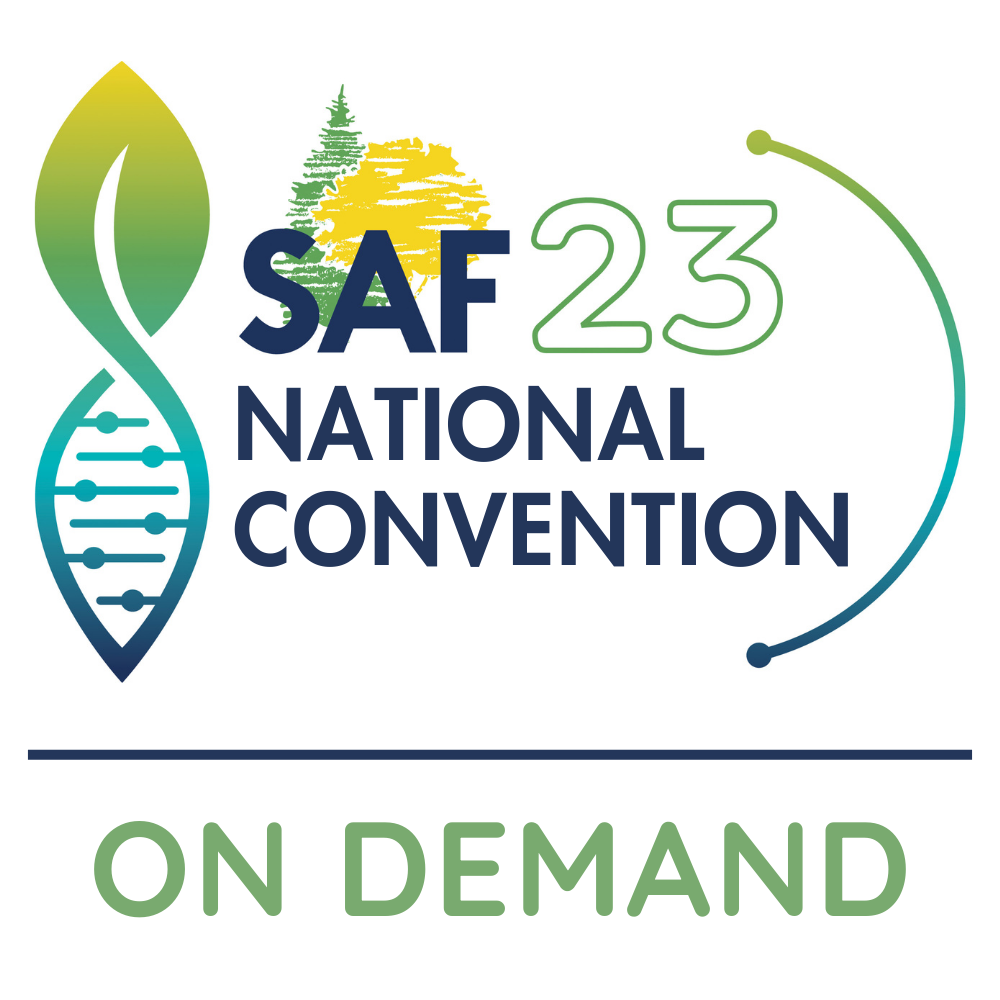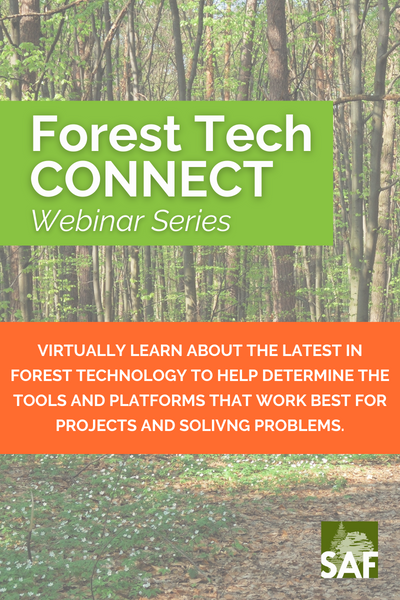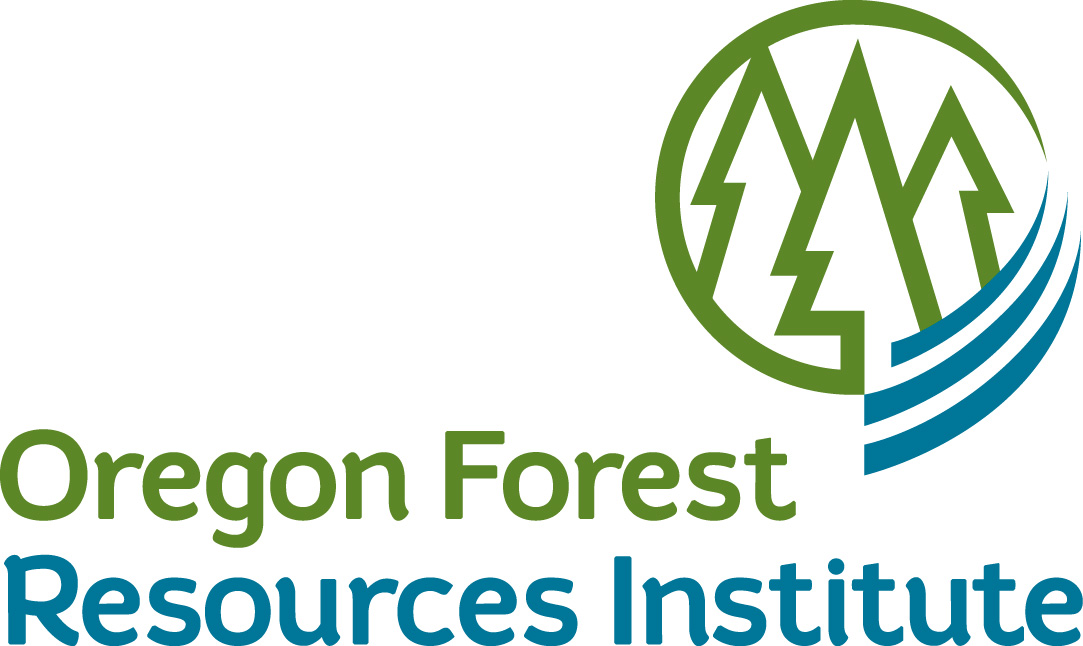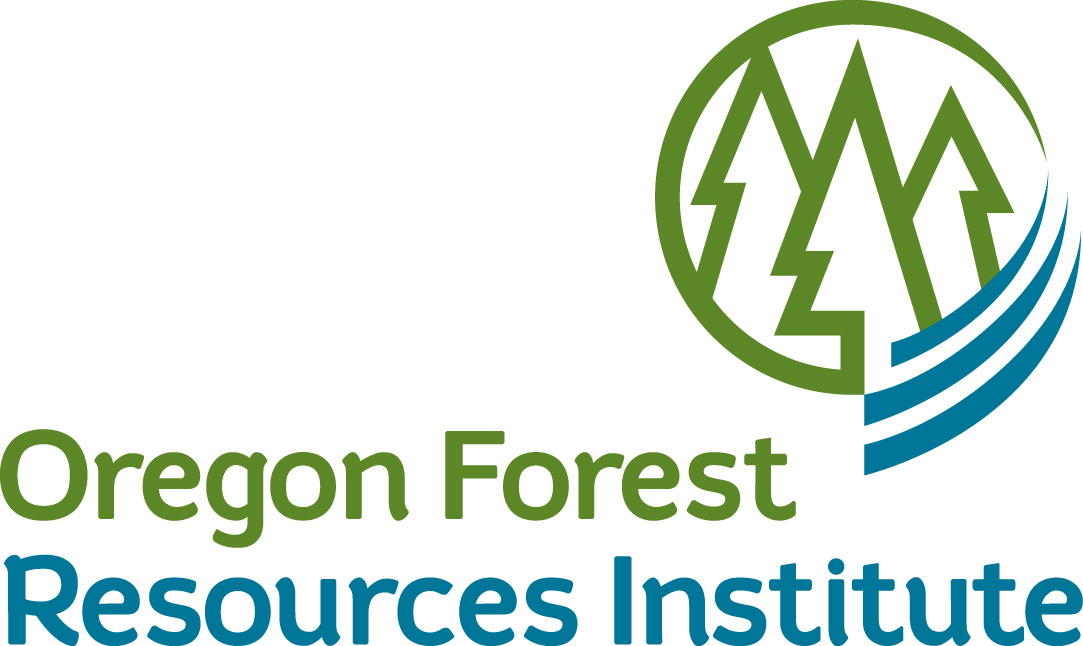SAF Learning
Adaptive Silviculture for Climate Change (ASCC) - Applying Novel Science On-The-Ground - Part 1
Petawawa Research Forest ASCC Site: Managing the Challenges and Opportunities of an ASCC Research Site
Speaker(s): Jeff Fera, Natural Resources Canada and Mike Hoepting, Natural Resources Canada
Description: We will present an overview of the Petawawa Research Forest's Adaptive Silviculture for Climate Change (ASCC) research study. Details will be provided on the research protocols, the challenges and opportunities of developing an ASCC research site and highlight the enthusiasm shown for the study by the forestry community.
Developing Climate Change Adaptation Strategies Across Three Different Forest Types in the Colorado ASCC Sites
Speaker(s): Mike Battaglia, USDA Forest Service Rocky Mountain Research Station
Description: Climate change adaptation strategies are being developed and implemented across an elevational gradient in Colorado's forests. In this presentation we discuss these strategies for dry mixed conifer, lodgepole pine, and spruce-fir forests.
Southern New England Oak ASCC Affiliate: Adaptive Silviculture for Oak-Hickory Forests in an Exurban Setting
Speaker(s): Thomas Worthley, University of Connecticut
Description: This presentation will highlight the challenges of perpetuating the oak-hickory community in a parcelized, mixed-use environment, will present a study of forest manager priorities and discuss the benefits of the resistance/resilience/transition approach to exemplify how silviculture is applied to create the conditions suitable "to grow what we want to grow".
John Prince Research Forest ASCC Site: Balancing Site History and Future Uncertainty in Adaptive Silviculture
Speaker(s): Kristen Waring, Northern Arizona University
Description: The John Prince Research Forest ASCC site was implemented in 2022 in an area with a history of overstory removals and where climate predictions have large uncertainties for precipitation. We balanced these factors in the silviculture prescriptions and aim to understand the implications of these choices for future forests.
Bet-Hedging and Forest Assisted Migration in the Northern Rockies ASCC
Speaker(s): Justin Crotteau, USDA Forest Service Rocky Mountain Research Station
Description: Of the Resistance, Resilience, and Transition treatments implemented at the Northern Rockies ASCC site, the Transition treatment's approach to future-adapted seedlings stands out as the most proactive regeneration strategy in the local experiment. We share the strategy, how we arrived there, and the steps to execution along the way.
Urban Adaptive Silviculture Along Floodplain Forests of the Upper Mississippi River
Speaker(s): Marcella Windmuller-Campione, University of Minnesota
Description: The first urban affiliated site of the ASCC network is located along the Upper Mississippi River in Crosby Farm Regional Park in Saint Paul, MN. Planting of 18 different tree species followed the resistant, resilience, and transition framework. Average survival has been greater than 75% across all treatments.
SAF CFE: 1.5 Category 1
ESA CEU: 0.375
Key:
Browser Recommendation
Use Chrome, Firefox, Edge, or Safari.
DO NOT USE Internet Explorer.
Quick Search
Customer Support
If you need assistance with registration, accessing a ForestEd product you purchased, or other customer service-related issues, please email ForestEdSupport@safnet.org during normal office hours: Monday - Friday, 9:00 am - 5:00 pm ET.
Sponsors
ForestEd Suggestion Box
Technical Support
For technical support, email ForestEdSupport@safnet.org



